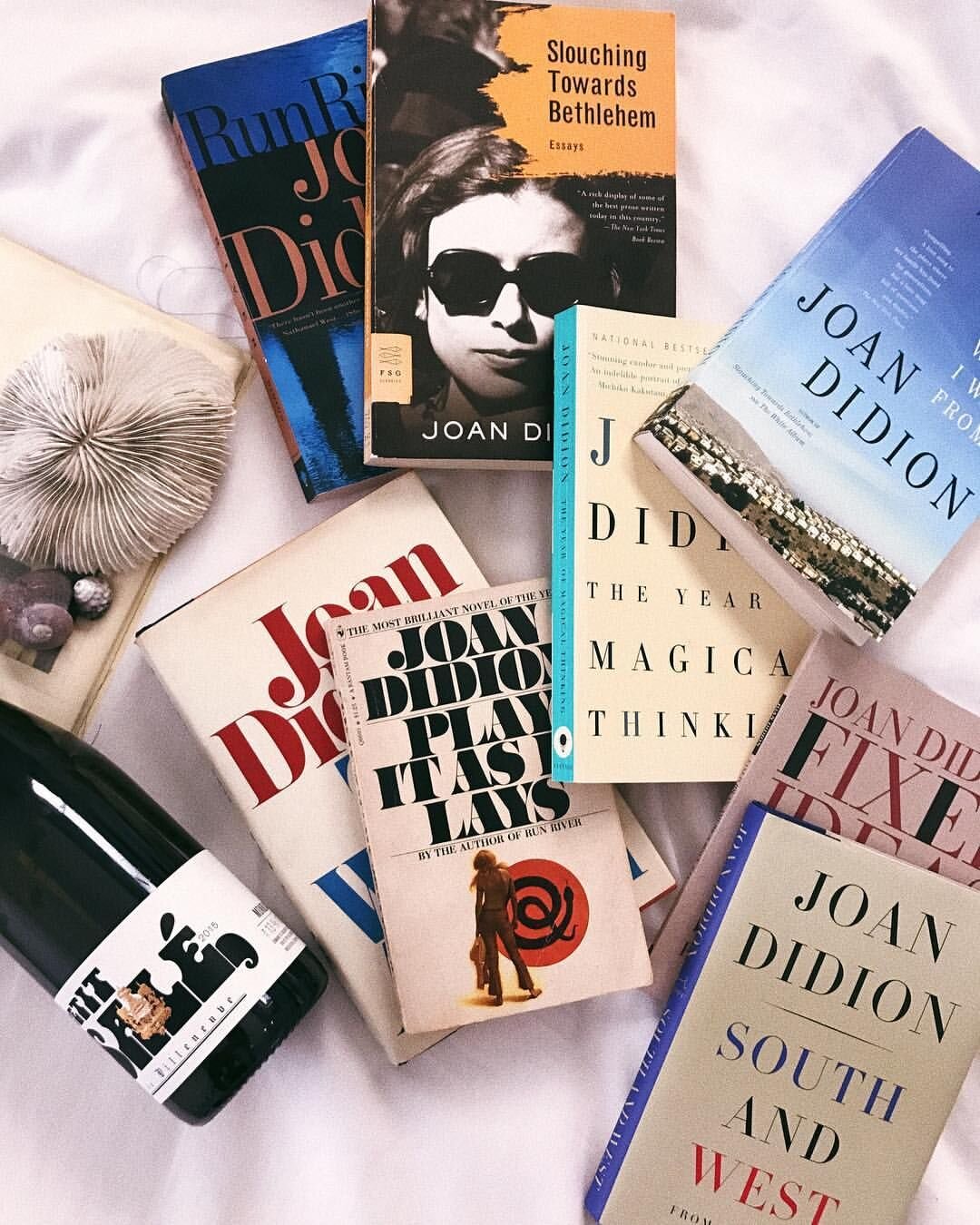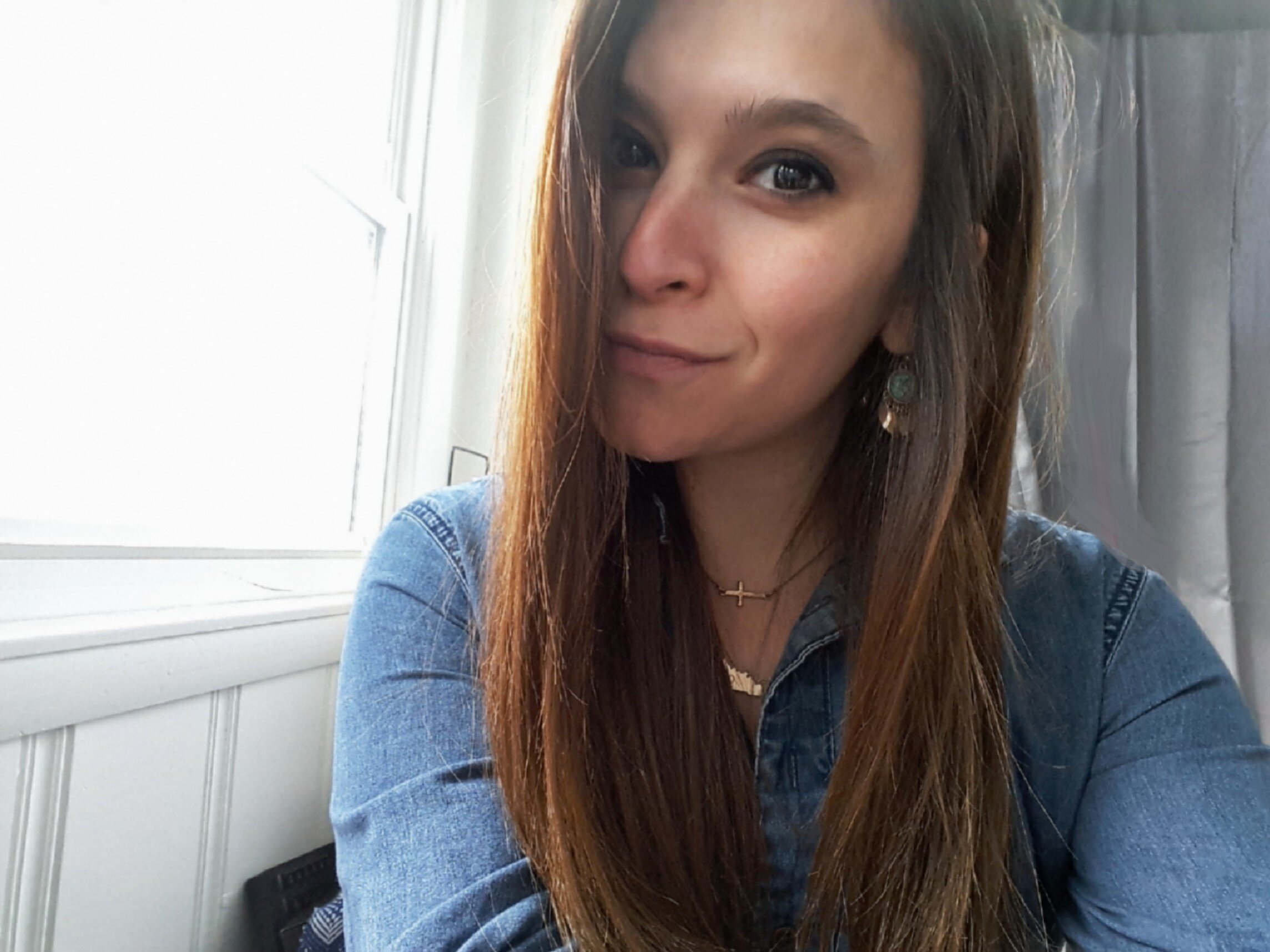Writers Who Inspire Us Series: The Magic of Joan Didion
Image from Pinterest
“We live entirely, especially if we are writers, by the imposition of a narrative line upon disparate images, by the ‘ideas’ with which we have learned to freeze the shifting phantasmagoria which is our actual experience.”
When I was learning about what it takes to become a writer, I brushed up against the same advice repeatedly: To be a great writer, you must be a great reader. Almost every single author I’ve listened to—whether it be through interviews, podcasts, or their own books on writing—have reiterated this advice when asked what someone can do to become a better writer. And the truth of the matter is that you really do need to read a lot to write well. Books are our first teachers, and the secrets, insight, and wisdom they contain are unparalleled. The easiest way to learn about plot and tone and pacing is by reading books from various authors hailing from diverse backgrounds, and by working your way from one genre to the next. Science-fiction contains different lessons than poetry, and if you want to hone your craft as a writer, you’ll need to take notes at each of these stops along the way.
Every author provides their own unique insights into the world of writing through the work they produce. This insight becomes the foundation upon which we build our own sense of style and our own writing careers. Inevitably, you are going to take more away from the authors whose work truly resonates with you as an individual, and such has been the case for me. When examining the numerous lessons I have taken from my favorite writers over the years, I have realized that no one has been a better teacher to me than Joan Didion. Didion’s career began in the late 1950s/early 1960s at Vogue Magazine. From there she has plunged headfirst into journalism, narrative nonfiction, fiction, and every minor facet that exists in between. Her career is the one I most aspire to emulate, and one of the main writing careers that remain untarnished to this day.
Didion is fearless in her work. She has said on several occasions that no topic is off-limits. When facing the possibility of divorce from her husband, fellow writer John Gregory Dunne, Joan chose to mention this in her work when reporting on a piece from Hawaii. “In the absence of a natural disaster we are left again to our own uneasy devices. We are here on this island in the middle of the Pacific in lieu of filing for divorce” (‘In the Islands’, The White Album, 1979). She goes on to say in the following paragraph that she included this information because she wanted the reader to have a better understanding of who she was—of what they would be getting out of her writing. Didion has never once shied away from her audience and has chosen instead to remain vulnerable and honest above all else.
To remain vulnerable and honest above all else as a writer is an extremely daunting prospect. Vulnerability inevitably breeds sadness, loss, and disappointment in all areas of life. To be vulnerable in one’s work is an exceptionally delicate offering to willingly provide an audience. Joan understands the offering she is laying out in her work and she has used this as her greatest advantage. Every word she writes is authentic, which is not something that can be said of every other writer’s body of work. Whether Joan was writing about her marital issues, her views of the women’s movement, or the Hoover Dam, she has always led from a place of honesty. There is no bullshit in Joan Didion’s writing, and this is, perhaps, the greatest lesson of all. To earnestly be oneself to a degree in which it becomes impossible to hide behind a keyboard is a goal we should all be actively striving toward. Whenever you read anything by her, whether it be one of her essays or one of her novels, you immediately get the distinct impression that this is the work of Joan Didion. She cannot be mistaken for anyone else. Her work cannot be confused with any other writer, dead or alive. She is who she is, and that is abundantly evident in every carefully constructed sentence she leaves behind on the page.
Success is bred from an influx of self-assurance. To achieve success as a writer, it is imperative that we truly know ourselves and what we are trying to say. Whether we are speaking as ourselves through nonfiction work or we are speaking through an array of vibrant characters in a fictive story, we must first be able to connect to ourselves before we can connect with our readers. If you want to learn how to do this effectively, read Joan Didion. You will be better for it.
Recommended Reading
I discovered Joan Didion much later than most. I stumbled across the Netflix documentary her nephew Griffin Dunne had created about her life and career, titled Joan Didion: The Center Will Not Hold, in 2018. After finishing the documentary, I ordered a few of Didion’s books so that I could read through the entire breadth of her distinguished portfolio. The first two books that I started with are the two I would recommend for those who have yet to encounter her work: The Year of Magical Thinking and Blue Nights.
Image from @belletrist
The Year of Magical Thinking was published in 2005, and it covers the events surrounding the death of Joan’s husband John Gregory Dunne. In this memoir, Didion painfully discusses the ways in which her life changed in the year following his death. She describes the overwhelming need to leave his shoes in the closet in case he comes back and needs something to wear on his feet. She details every emotion, every yearning, every thought she experiences in the wake of his sudden loss. The memoir is only 240 pages long, but within those 240 pages she captures a love that spanned over five decades and the insurmountable grief that accompanies the loss of one’s partner. There are so many lessons to be taken from this memoir, both in terms of becoming a better writer and becoming a better human being.
Blue Nights, which was published in 2011, is similarly devastating. Following the loss of her husband, Joan suffered through the death of their only child, Quintana. Though John and Quintana died within two years of one another, Joan did not touch upon the loss of her daughter in The Year of Magical Thinking because she wanted the two events to stand alone. In Blue Nights, she recounts the devastation of losing her husband and her daughter in quick succession and discusses in detail how difficult it is to be the one who is left behind. I read The Year of Magical Thinking and Blue Nights back to back, and I always recommend reading them in this order. In doing so, you understand the full scope of grief that Didion has experienced, and the two memoirs compliment one another artistically.
For Didion’s fiction, start with Democracy (1984) and Play It As It Lays (1970). Both are relatively slim, but they perfectly capture the strength of Didion’s writing. The stories she weaves in these novels are remarkable—the characters feel familiar, and she effortlessly brings the reader along with every plot development, every detail, every unfolded secret. Democracy is a masterclass in fiction writing, and it is a novel that every writer should read at some point in their lives. The lessons you take away from these two books will strengthen your ability to tell a story that is both captivating and sincere.
If you want to explore Joan’s work but you don’t want to dive into one of her books just yet, I suggest starting with one of her acclaimed essays. A basic Google search will yield an array of results, but I’d recommend the following three essays to whet your appetite:
Slouching Towards Bethlehem
On Keeping a Notebook
On Self-Respect
Each of these essays show Didion’s character and her unwavering ability to write about any subject matter with a tone that is engaging and truthful. Her collections of essays, including The White Album, Where I Was From, and Salvador, among many, many others, are all highly recommended and well worth reading. The magic that is Joan Didion lies in the fact that something different can be learned from each of her published works: what you take away from her memoirs will differ from what you take away from her fiction, and this all varies from what you will take away from her essay collections. But the overarching theme of everything in her work, and everything I’ve attempted to say in this long-winded essay, is that remaining true to oneself is the underlying current with which our careers will be carried along. Read a lot and write well.
About Sam Cohen
Sam Cohen is a writer and editor based in New England. She lives with her wonderful partner Caleb, and enjoys learning new languages, drinking lattes, and spending time with her loved ones. Sam is an avid reader who practices yoga and tries to laugh as often as possible. She hopes to be a published author one day. She can be found on Twitter and Instagram.


